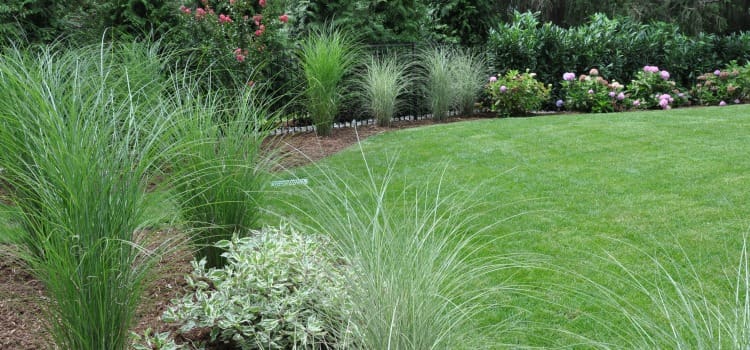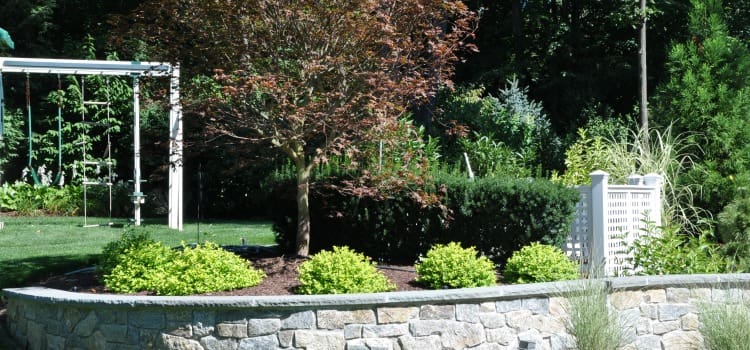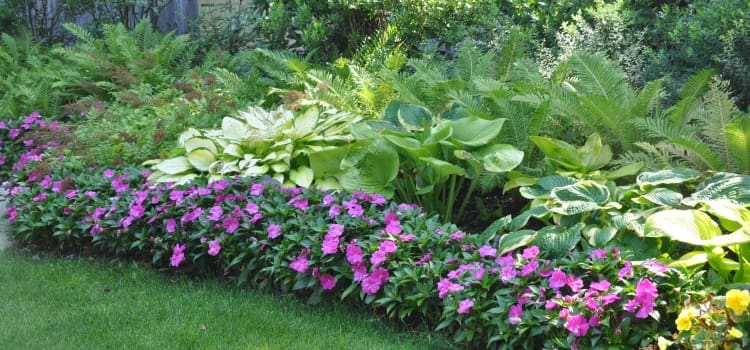There’s no perfect time of year to start looking for a professional lawn care company in NJ, but the sooner you start, the sooner you will have a beautiful, lush lawn and landscape. Hiring a professional to take care of your landscaping needs will ensure a green, healthy lawn and landscape year-round.
To keep your Northern NJ lawn looking healthy year-round, seasonal care and maintenance is required. Your lawn requires different attention during each season, spring, summer, fall and winter. A professional lawn care company in NJ can provide proper care and maintenance through each season to make sure you have a lush, healthy lawn and landscape that reflects a well-maintained appearance.
 Get Prepared for Spring
Get Prepared for Spring
Although you can hire a lawn care company in NJ during any season, hiring one during the winter or early spring will help you get prepared for spring growth, the busiest growth season of the year. In early spring, after the last signs of frost disappear, everything begins to grow at a faster pace. Your grass grows at a faster pace, flowers and plants produce colorful new blooms and trees and shrubs produce new green leaves. When spring arrives, it’s important to focus on regular lawn care and maintenance, preventing weeds, fertilizing new growth and protecting against harmful insects and outdoor pests.
Your lawn and landscape will require care and maintenance during the winter season, but it will be less than what is required during spring, summer and fall. Winter may be a good time to think about your lawn care needs and your budget and talk to a lawn care company in NJ, like Borst Landscape & Design, about professional lawn care services for your home.
Look for Existing Lawn Problems
If you have existing lawn problems, don’t wait until winter is over to hire a lawn care professional. Problems will likely get worse if they aren’t taken care of right away. Take a look at some common warning signs that may signal existing lawn problems.
Brown Spots
One of the most common lawn complaints from Bergen County homeowners is brown spots in the lawn. Most people blame brown spots or dead patches of grass on insects and lawn diseases, but in many cases it’s actually caused by improper lawn care. To determine the exact cause of the problem, it’s necessary to examine the lawn for warning signs that point to specific problems. The most common causes of brown spots include:
Improper Watering
Improper irrigation is often responsible for brown spots, and it also predisposes your lawn to the invasion of insects, lawn diseases and weeds. Proper watering is essential for a healthy, green lawn.
Improper Mowing
A dull mower blade can give your grass a tan or brownish appearance. Scalping, cutting the grass too short, makes the lawn look brown by removing too much leaf surface. It also increases soil temperature by exposing the soil to more sun which can force your grass to become dormant or die.

Heat and Drought
Cool-season grasses, common in Northern NJ lawns, typically go dormant and turn brown in warm weather. Check with a professional lawn care company in NJ to make sure that you have the right type of grass.
Insects
Spring, summer and fall brings out a variety of insects that can cause brown spots in your lawn. Army worms, chinch bugs and grub worms can do significant damage to your lawn in a short period of time.
Lawn Diseases
There’s a variety of lawn diseases that are common in Northern NJ lawns. Dollar spot, fusarium patch and plythium blight are lawn diseases that typically cause brown spots and dead patches of grass.
Chemicals
The misuse of chemicals, fertilizers, pesticides and herbicides can cause brown spots in your lawn. If fertilizer is applied incorrectly or unevenly, it can burn your grass leaving brown scorched-like areas. Pesticides and herbicides can also burn your lawn, especially when sprayed directly on grass blades.
Animal Urine
Dogs are the most common culprit of brown spots in your lawn, but large birds and other animals can also cause them. Animal urine causes brown or yellow spots, often surrounded by a bright green ring.
Yellow Grass
If your grass turns yellow, it often signals nutrient deficiencies typically from nitrogen and iron found in fertilizers. Without proper nutrients, grass becomes thin and unhealthy, soil becomes dry and compact and grass roots become short and weak. A professional lawn care company in NJ can make sure that your lawn is getting adequate nutrients from proper fertilizers and fertilization schedules. Some landscape professionals, like Borst Landscape & Design, provide organic lawn care and maintenance with chemical-free lawn care products.
If your lawn isn’t getting enough nitrogen, the key component in lawn fertilizer, it will begin to change from lush bright green, to light green and then to yellow. The color change is usually first noticed in the lower part of grass blades at the soil level, but yellowing will eventually spread to the entire lawn. You may also notice less grass growth, another sign of nitrogen deficiency.
Yellow grass can also be caused by lack of iron in your soil. Iron deficiency usually appears in patches where grass blades turn yellow, but the veins remain green. Areas that are adjacent to concrete structures such as sidewalks, pathways, driveways, patios and planters commonly turn yellow from iron deficiency.

Weeds
Weeds are usually a sign of an unhealthy lawn that’s often malnourished or improperly maintained. Some weeds are aggressive and fast-growing, so they quickly overtake grass, plants and flowers depriving them of food and water. Aggressive weeds take every opportunity to find an unhealthy lawn and spread rapidly. Some weeds are noxious and cause problems for humans on contact. Although most common weeds don’t cause breathing problems or skin reactions, they are certainly an unsightly nuisance in any lawn and usually require treatment from a professional lawn care company in NJ to get rid of them. There are three basic types of weeds, and each type requires a different method of weed control.
Broadleaf Weeds
Broadleaf weeds, like dandelions, chickweed and white clover are easy to identify with broad, flat leaves growing on a stem. They are aggressive weeds that are hard to get rid of without proper weed control.
Grassy Weeds
Grassy weeds often sprout from seeds that are spread by the wind. Crabgrass, yellow foxtail and goose grass are grassy weeds that are common in Bergen County. By applying a pre-emergent weed control in the spring, you can stop seed germination.
Creeping Weeds
Creeping weeds grow close to the ground and resemble vines. They will form a mat-like ground cover if allowed to flourish. The vines have nodes where leaves grow, so they can form roots wherever they come in contact with the soil.
By hiring a professional lawn care company in NJ to maintain your lawn on a regular basis, you can eliminate potential lawn problems before they arise. During the winter season, or at the beginning of spring, talk to the professionals at Borst about your Bergen County lawn care needs, so we can create a year-round lawn care and maintenance program for your home. We can keep your lawn and landscape beautiful, green and healthy throughout all the seasons.

